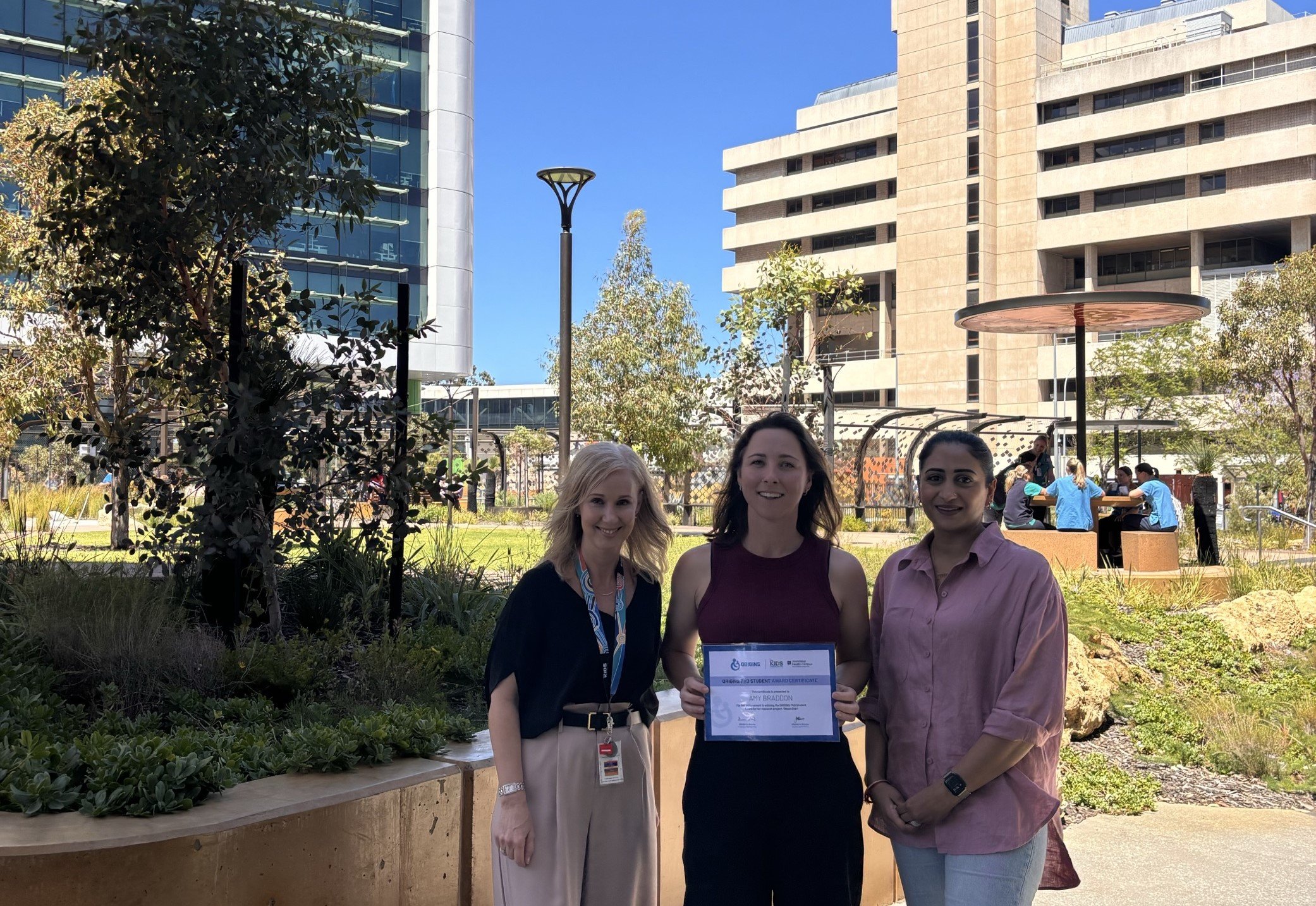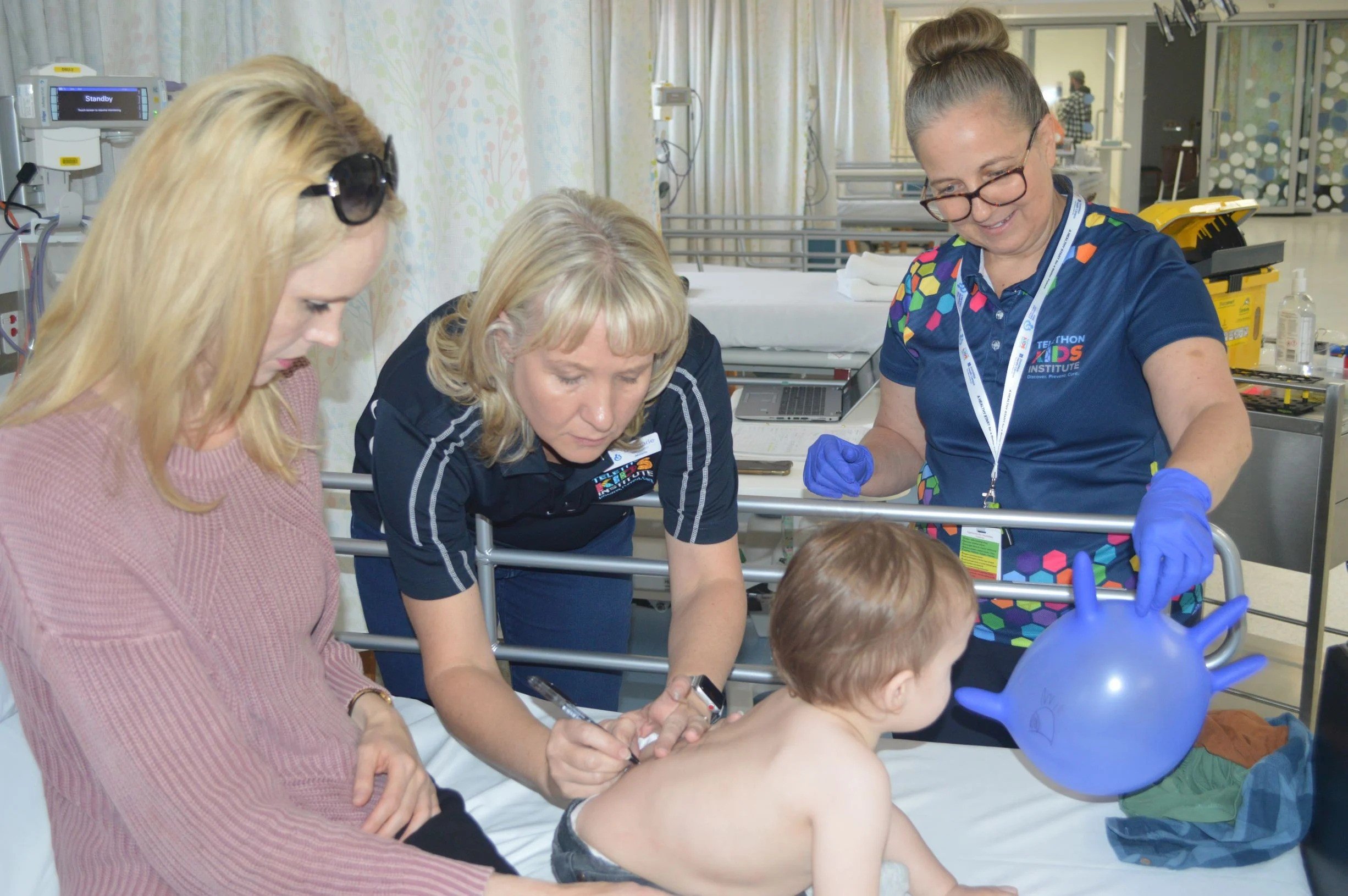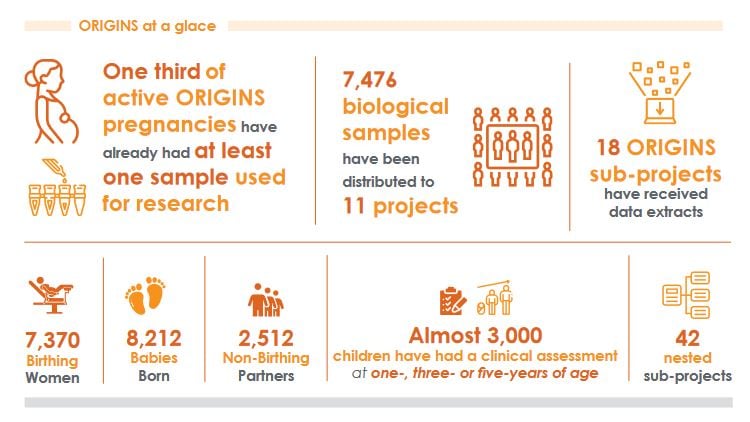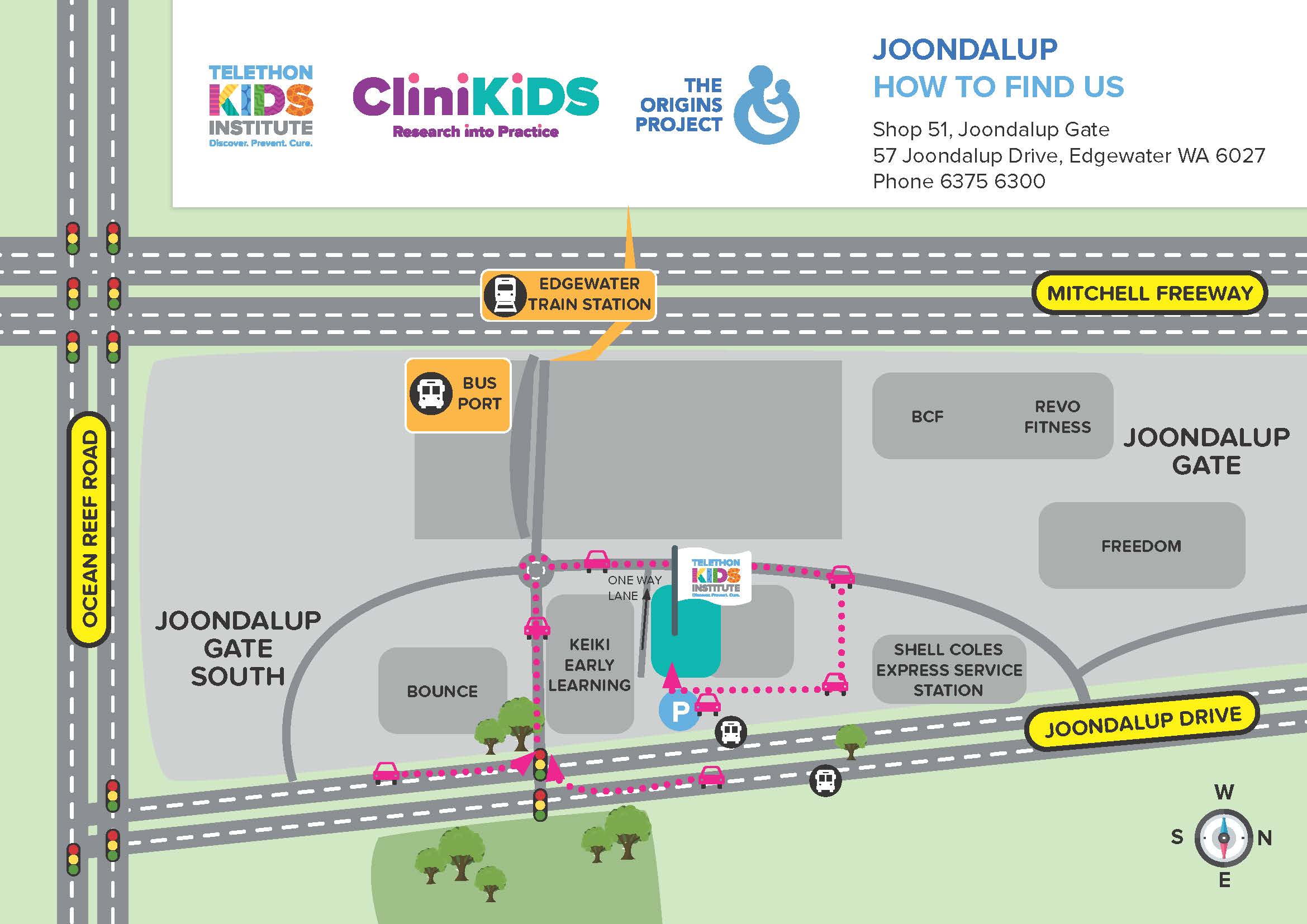Search

ORIGINS is an interventional cohort study, meaning participants receive timely feedback and an action plan to address any potential abnormalities.

News & Events
ORIGINS is pleased to announce the 2024 recipient of its inaugural PhD Student AwardMiss Braddon will be awarded with $15,000 to go towards her research project, DreamStart

ORIGINS provides researchers, students, clinicians and universities with a unique opportunity to play a crucial role in changing the health of future generations.

News & Events
Associate Professor Debbie Palmer Awarded Stan Perron Charitable Foundation FellowshipThis fellowship will assist Associate Professor Palmer in her large-scale food allergy prevention trials.

The impact of ground-breaking research is helping ORIGINS families

News & Events
New Home for ORIGINSThe Kids Joondalup will be the new home for the ORIGINS research and data teams

The community reference group consists of members from the Wanneroo and Joondalup community who provide a community perspective for the Project.

News & Events
Calling All Budding ArtistsCalling all budding artists - submit your child's artwork to win!

Hands-on science lesson plans for teachers related to the topic 'Explore Our Ears'.

Discover resources and science activities for kids for the topic 'Power of Our Lungs'.
